|
Books Should Be Free Loyal Books Free Public Domain Audiobooks & eBook Downloads |
|
|
Books Should Be Free Loyal Books Free Public Domain Audiobooks & eBook Downloads |
|
Non-fiction |
|---|
|
Book type:
Sort by:
View by:
|
By: S. Baring-Gould (1834-1924) | |
|---|---|
 The Book of Werewolves: Being an Account of a Terrible Superstition
The Book of Werewolves: Being an Account of a Terrible Superstition
A survey of the myths and legends concerning lycanthropy from ancient times to the Victorian Era. | |
By: Oliver Lodge (1851-1940) | |
|---|---|
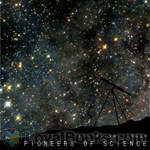 Pioneers of Science
Pioneers of Science
This book takes its origin in a course of lectures on the history and progress of Astronomy arranged for Sir Oliver Lodge in the year 1887. The first part of this book is devoted to the biographies and discoveries of well known astronomers like Copernicus, Brahe, Kepler, Galileo and Newton. In the second part, the biographies take a back seat, while scientific discoveries are discussed more extensively, like the discovery of Asteroids and Neptune, a treatise on the tides and others. | |
By: Robert Buist | |
|---|---|
 The Family Kitchen Gardener
The Family Kitchen Gardener
The Family Kitchen Gardener contains plain and accurate descriptions (ca 1847) of all the different species and varieties of specifically American culinary vegetables, fruit, and herbs in alphabetical order. It includes the best mode of cultivating, propagating, and managing them in the garden or under glass, and a description of the best implements used in maintaining such gardens. | |
By: Thomas Frost (1821-1908) | |
|---|---|
 In Kent with Charles Dickens
In Kent with Charles Dickens
By his own admission, Thomas Frost found it hard to make a living from his writing, and no doubt he used the name of Dickens in the title of this book to boost sales. Frost tells a good tale, and the book is not only of interest to enthusiasts of Dickens and the county of Kent.He includes some of Dickens’ own descriptions of locations, as well as regaling us with anecdotes about towns and villages which he visits, including an account of the last armed rising on British soil – the Battle of Bossenden Wood... | |
By: Alexander Kinglake | |
|---|---|
 Eothen, or Impressions of Travel brought Home from the East
Eothen, or Impressions of Travel brought Home from the East
A classic of Victorian travel writing, Kinglake’s book describes his journey through the Ottoman empire to Cairo, and his residence there in time of plague. | |
By: Frédéric Bastiat | |
|---|---|
 Sophisms of the Protectionists
Sophisms of the Protectionists
"To rob the public, it is necessary to deceive them," Bastiat said and believed. He reasoned, employing repetition to various applications, against fallacious arguments promoting the "Protection" of industries to the detriment of consumers and society. (Introduction by Katie Riley) | |
By: Maria Gentile | |
|---|---|
 The Italian Cook Book
The Italian Cook Book
One of the beneficial results of the Great War has been the teaching of thrift to the American housewife. For patriotic reasons and for reasons of economy, more attention has been bestowed upon the preparing and cooking of food that is to be at once palatable, nourishing and economical.In the Italian cuisine we find in the highest degree these three qualities. That it is palatable, all those who have partaken of food in an Italian trattoria or at the home of an Italian family can testify, that it is healthy the splendid manhood and womanhood of Italy is a proof more than sufficient... | |
By: Eva K. Betz (1897-1968) | |
|---|---|
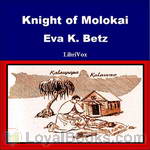 Knight of Molokai
Knight of Molokai
Hurricane! Volcano eruptions and fire! Leprosy! Nothing deterred Father Damien from doing the work to which he had been called. Outstandingly big and strong as a boy, he was notably kind as a young man. He needed all his strength and kindness when he went to live at the leper colony of Molokai.This children’s biography of Father Damien of Molokai was written by Eva K. Betz, a prolific Catholic writer of history and biography books for children. (Introduction from an original dust jacket and Maria Therese) | |
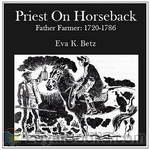 Priest on Horseback - Father Farmer: 1720 - 1786
Priest on Horseback - Father Farmer: 1720 - 1786
A historical novel for children, which tells the story of several months in the life of the then famous Father Farmer, as he traveled a Mass circuit in Pre-Revolutionary, Colonial America. He faced much danger and and adventure, in order to provide the Mass and the Sacraments to Catholics who had not seen a priest in years.Father Farmer was a real life missionary priest during the 1700’s in what is now New England. In 1779 he was appointed as one of the first trustees of the University of Pennsylvania. He also had a reputation as a philosopher and astronomer in his time, and was a member of the American Philosophical Society. (Introduction by Maria Therese)No on-line text available. | |
By: Pliny the Elder | |
|---|---|
 The Natural History
The Natural History
"Naturalis Historia" (Latin for "Natural History") is an encyclopedia published circa AD 77-79 by Pliny the Elder. It is one of the largest single works to have survived from the Roman empire to the modern day and purports to cover the entire field of ancient knowledge, based on the best authorities available to Pliny. The work became a model for all later encyclopedias in terms of the breadth of subject matter examined, the need to reference original authors, and a comprehensive index list of the contents... | |
By: Charles Johnson | |
|---|---|
 A General History of the Pyrates
A General History of the Pyrates
A General History of the Robberies and Murders of the most notorious Pyrates is a 1724 book containing biographies of contemporary pirates. It's author uses the name Captain Charles Johnson, generally considered a pseudonym. The real identity of the author was thought by some scholars to be Daniel Defoe, although this has since been disputed. The publisher Nathaniel Mist or somebody working for him are other suggested authors. In the first volume, "Johnson" sticks fairly close to the available sources, though he embellishes the stories somewhat... | |
By: Friedrich Engels (1820-1895) | |
|---|---|
 Condition of the Working-Class in England in 1844
Condition of the Working-Class in England in 1844
This is Engels' first book (since considered a classic account of England's working class in the industrial age), which argues that workers paid a heavy price for the industrial revolution that swept the country. Engels wrote the piece while staying in Manchester from 1842 to 1844, based on th bohis observations and several contemporary reports conducted over the period. | |
By: John S. C. Abbott (1805-1877) | |
|---|---|
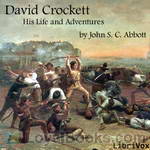 David Crockett: His Life and Adventures
David Crockett: His Life and Adventures
David "Davy" Crockett (August 17, 1786 – March 6, 1836) was a celebrated 19th century American folk hero, frontiersman, soldier and politician. He is commonly referred to in popular culture by the epithet “King of the Wild Frontier.” He represented Tennessee in the U.S. House of Representatives, served in the Texas Revolution, and died at the Battle of the Alamo. This narrative attempts faithfully to record the influences under which David Crockett was reared and the incidents of his wild and wondrous life... | |
 Empire of Russia from the Remotest Periods to the Present Time
Empire of Russia from the Remotest Periods to the Present Time
A history of Russia from 500 B.C. to 1855 A.D., written by John Stevens Cabot Abbott, the brother of Jacob Abbott. | |
By: Gottfried Wilhelm Leibniz (1646-1716) | |
|---|---|
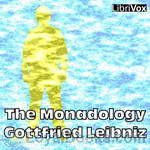 The Monadology
The Monadology
The Monadology (La Monadologie, 1714) is one of Gottfried Leibniz’s best known works representing his later philosophy. It is a short text which sketches in some 90 paragraphs a metaphysics of simple substances, or monads. What he proposed can be seen as a modification of occasionalism developed by latter-day Cartesians. Leibniz surmised that there are indefinitely many substances individually ‘programmed’ to act in a predetermined way, each program being coordinated with all the others. This is the pre-established harmony which solved the mind body problem at the cost of declaring any interaction between substances a mere appearance, something which Leibniz accepted... | |
By: Anges Strickland, Elisabeth Strickland (1796-1874) | |
|---|---|
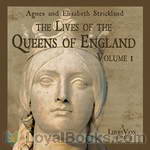 The Lives of the Queens of England
The Lives of the Queens of England
The Lives of the Queens of England is a multi-volumed work attributed to Agnes Strickland, though it was mostly researched and written by her sister Elizabeth. These volumes give biographies of the queens of England from the Norman Conquest in 1066. Although by today's standards, it is not seen as a very scholarly work, the Stricklands used many sources that had not been used before.Volume one includes the biographies of Matilda of Flanders, Matilda of Scotland, Adelicia of Louvaine, Matilda of Boulogne and Eleanora of Aquitaine.(Introduction by Ann Boulais) | |
By: Sara Ware Bassett (1872-1968) | |
|---|---|
 Story of Wool
Story of Wool
Mr. Clark and Donald spend a year out west to the Crescent Ranch in Idaho learning about raising sheep. | |
By: Arthur Graeme West (1891-1917) | |
|---|---|
 The Diary of a Dead Officer
The Diary of a Dead Officer
Published posthumously in 1919, this collection of diary entries presents a scathing picture of army life and is said to be one of the most vivid accounts of daily life in the trenches. It chronicles West's increasing disillusion with war and his move toward pacifist and atheist beliefs. The final part consists of his powerful war poems, including God, How I Hate You, You Young Cheerful Men, and Night Patrol. West was killed by a sniper in 1917. In view of some of his poems, one wonders if death was not unwelcome. (Introduction adapted from Wikipedia by Ruth Golding) | |
By: Estelle M. Hurll (1863-1924) | |
|---|---|
 Child-life in Art
Child-life in Art
The poetry of childhood is full of attractiveness to the artist, and many and varied are the forms in which he interprets it. The Christ-child has been his highest ideal. All that human imagination could conceive of innocence and purity and divine loveliness has been shown forth in the delineation of the Babe of Bethlehem. The influence of such art has made itself felt upon all child pictures. It matters not whether the subject be a prince or a street-waif; the true artist sees in him something which is lovable and winning, and transfers it to his canvas for our lasting pleasure. | |
By: George Morang (1866-1937) | |
|---|---|
 The Copyright Question
The Copyright Question
This is a letter to the Toronto Board of Trade regarding Canadian copyrights. Morang requested an appearance before the Toronto Board of Trade but was denied. This is his letter in response. He wished to make clear his position. | |
By: Lavinia Honeyman Porter | |
|---|---|
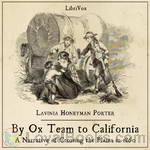 By Ox Team to California - A Narrative of Crossing the Plains in 1860
By Ox Team to California - A Narrative of Crossing the Plains in 1860
Imagine a young, twenty-something woman in 1860, reared “in the indolent life of the ordinary Southern girl” (which means she has never learned to cook); married to a professional man who knows “nothing of manual labor;” who is mother to a young son; and who has just found out she is pregnant with their second child. Imagine that this couple has become “embarrassed financially” by “imprudent speculations,” and that they are discussing what to do. They decide to buy a wagon and three yoke of unbroke oxen and head overland to California... | |
By: James E. Seaver (1787-1827) | |
|---|---|
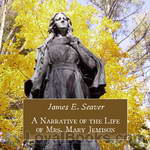 A Narrative of the Life of Mrs. Mary Jemison
A Narrative of the Life of Mrs. Mary Jemison
Mrs. Mary Jemison was taken by the Indians, in the year 1755, when only about twelve years of age, and has continued to reside amongst them to the present time. Containing an account of the murder of her father and his family; her sufferings; her marriage to two Indians; her troubles with her children; barbarities of the Indians in the French and Revolutionary Wars; the life of her last husband, and many historical facts never before published. | |
By: Francis Fisher Browne (1843-1913) | |
|---|---|
 Every-day Life of Abraham Lincoln
Every-day Life of Abraham Lincoln
This detailed biography covers the places in Lincoln's life: Indiana, Illinois, Washington. It also traces his various roles as storekeeper, serviceman, state legislator, lawyer, politician, Republican Party leader, and of course President. Along the way we learn about his days of hardship as a beginning lawyer, his love for Anne Rutledge, such myths as "Honest Abe," and his deep concerns over the issue of slavery. The author uses Lincoln's correspondence with others to show his personality traits and opinions about topics of his world. | |
By: Henry Vizetelly | |
|---|---|
 California
California
Vizetelly, writing under the pseudonym J. Tyrwhitt Brooks, recalls an expedition to California he took between 1847-1848 . Originally, he planned to enlist as a surgeon for the US Army during the Mexican war, but conflicts had ended by the time he applied. In a quick change of plans, he joined a group of prospectors on their way to the newly found gold fields of California. While he might not find service in the military, his training as a physician made him a valuable addition to the ragtag team of explorers... | |
By: John S. Jenkins (1818-1852) | |
|---|---|
 The Heroines of History
The Heroines of History
A look at some of the famous women in European history. Includes biographies on Cleopatra; Isabella of Castile; Joan of Arc; Maria Theresa; Josephine; Elizabeth of England; Mary of Scotland; Catherine of Russia; Marie Antoinette; and Madame Roland. Mr. Jenkins, whose name remains on the title-page of this volume, was prevented from finishing the work for a long time by sickness, and finally by death. The first chapter is from his pen, and the rest has been written according to his instructions by one whom he selected, and who has had access to works rare in this country, such as Monstrelet's Chronicles, Tooke's Life of Catherine II... | |
By: Watkin Tench (1758-1833) | |
|---|---|
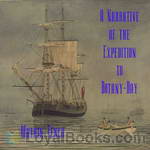 A Narrative of the Expedition to Botany-Bay
A Narrative of the Expedition to Botany-Bay
Watkin Tench was an officer of the British Marines in the First Fleet to settle NSW. This is an interesting and entertaining account of his experiences during that time (Introduction by Tabithat) | |
By: Michael Faraday (1791-1867) | |
|---|---|
 The Chemical History of a Candle
The Chemical History of a Candle
The Chemical History of a Candle is a series of 6 lectures on chemistry presented to a juvenile audience in 1848. Taught by Michael Faraday - a chemist and physist, and regarded as the best experimentalist in the history of science - it is probably the most famous of the Christmas Lectures of the Royal Society. Taking the everyday burning of a candle as a starting point, Faraday spans the arc from combustion and its products, via the components of water and air (oxygen, hydrogen, nitrogen, carbon), back to the type of combustion that happens in the human body when we breathe... | |
By: Dudley Landon Vaill (1873-?) | |
|---|---|
 The County Regiment
The County Regiment
A sketch of the second regiment of Connecticut volunteer heavy artillery, originally the Nineteenth Volunteer Infantry, in the Civil War. | |
By: National Gambling Impact Study Commission | |
|---|---|
 National Gambling Impact Study Commission Final Report
National Gambling Impact Study Commission Final Report
The National Gambling Impact Study Commission was given the task of conducting a comprehensive legal and factual study on the social and economic implications of gambling in the United States. This report presents the principal findings of that work and recommendations for action. | |
By: Las Cortes y el Pueblo Español | |
|---|---|
 Constitución Española de 1978
Constitución Española de 1978
Constitución vigente en España actualmente, fruto de la Transición a la democracia tras la muerte de Francisco Franco. (Introducción por AGV) | |
By: P.T. Barnum | |
|---|---|
 The Art of Money Getting
The Art of Money Getting
Phineas Taylor Barnum (July 5, 1810 – April 7, 1891) was an American showman, businessman, and entertainer, remembered for promoting celebrated hoaxes and for founding the circus that became the Ringling Bros. and Barnum & Bailey Circus.(br />His successes may have made him the first "show business" millionaire. Although Barnum was also an author, publisher, philanthropist, and for some time a politician, he said of himself, "I am a showman by profession...and all the gilding shall make nothing else of me," and his personal aims were "to put money in his own coffers". (Reference: Wikipedia.org) | |
By: Richard Francis Burton (1821-1890) | |
|---|---|
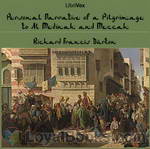 Personal Narrative of a Pilgrimage to Al-madinah and Meccah
Personal Narrative of a Pilgrimage to Al-madinah and Meccah
Sir Richard Francis Burton (1821 – 1890) was an English explorer, translator, writer, soldier, orientalist, ethnologist, linguist, poet, hypnotist, fencer and diplomat. He was known for his travels and explorations within Asia and Africa as well as his extraordinary knowledge of languages and cultures. According to one count, he spoke 29 European, Asian, and African languages.Burton's best-known achievements include traveling in disguise to Mecca, The Book of One Thousand Nights and A Night, an... | |